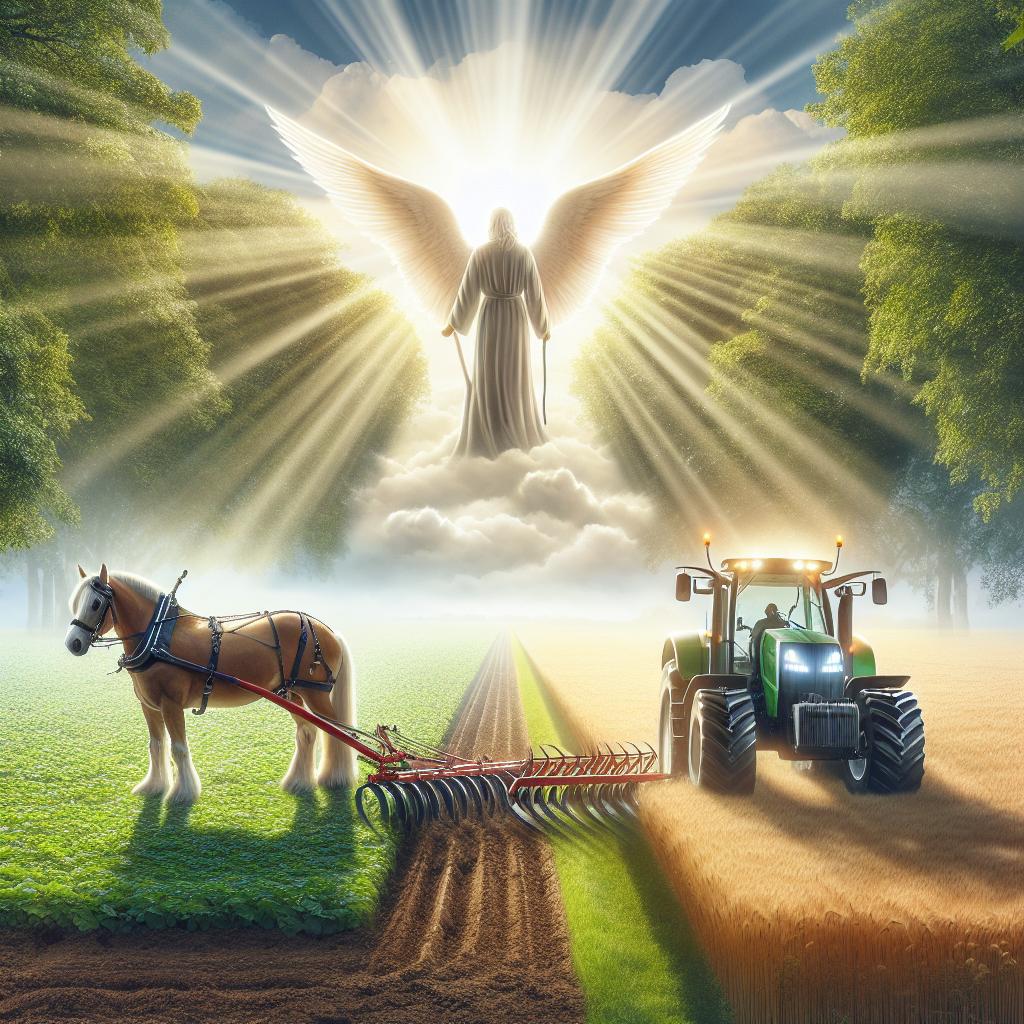
The Horse and the Tractor: Divine Lessons in Modern Agriculture
Published: 14 June 2024
The Horse and the Tractor: Why God and Evolution Don't Mix
Imagine a farmer using a horse-drawn plow, content with the traditional method of farming. One day, a salesman approaches him, excitedly introducing a new invention called the diesel tractor. The farmer assumes that the tractor is just another means to enhance the horse's pulling power. However, the salesman explains that the tractor is actually a replacement for the horse, as it is self-propelling and does not require an animal to pull it.
The farmer suggests combining the horse and the tractor by placing the tractor in neutral and allowing the horse to pull it along with the plow. But the salesman points out that this would be unnecessary and illogical. If the farmer wants to use the tractor, he should let it run on its own power. And if he wants to use the horse, he should let it plow by itself. There is no reason to burden the horse with pulling a heavy machine when it is not needed.
The farmer then decides that he will drive the tractor himself and use the horse only for recreation. However, he insists on telling everyone that his horse is pulling the tractor, even though it is clear that the tractor operates independently.
This story serves as an analogy to highlight the incompatible nature of combining God and evolution in what is known as theistic evolution. Just as there is no logical reason to have a horse pull a tractor in neutral, there is no need for God to be involved in an evolutionary process that supposedly functions solely through natural forces and entities.
If evolution can adequately explain the origin of life and other complex biological phenomena without invoking God's intervention, then God becomes irrelevant, much like the horse grazing in a pasture while the tractor works efficiently on its own. On the other hand, if evolution falls short in providing a satisfactory explanation for these phenomena, then why burden God with a flawed and wasteful process?
Attempting to retain a nominal or rhetorical role for God in a process that does not require His involvement is comparable to the farmer claiming that his horse, despite being invisible, is pulling the tractor. Such claims do not inspire confidence but rather evoke pity for the delusion.
It is important to recognize that theistic evolution and naturalistic evolution are functionally identical. The only distinction lies in the theological language attached to the former, which ultimately makes no difference, much like an invisible horse to a tractor.
Why This Matters
The debate between creationism and evolution has profound implications for understanding our origins and the role of God in the process. Theistic evolution attempts to reconcile the scientific theory of evolution with a belief in God as the Creator. However, it raises questions about the consistency of this approach with both scientific evidence and biblical teachings.
Understanding the compatibility or incompatibility of God and evolution is crucial for individuals seeking to develop a coherent worldview that aligns with their faith and scientific understanding. It encourages deeper reflection on the nature of God's involvement in creation and prompts us to examine the evidence and arguments supporting various perspectives.
Think About It
- Can an evolutionary explanation for the origin of life, as well as the complexity and diversity of living organisms, be sufficient without invoking God's intervention?
- What are the implications of combining God and evolution? How does it affect our understanding of God's role as Creator?
- Do you think it is possible to reconcile a literal interpretation of biblical creation with scientific theories such as evolution? What challenges or conflicts might arise?
- Reflect on your own beliefs about creation and evolution. How do your beliefs shape your understanding of God's involvement in the world?
- Consider other areas where science and religion intersect. How do you navigate potential conflicts or tensions between scientific theories and your faith?
